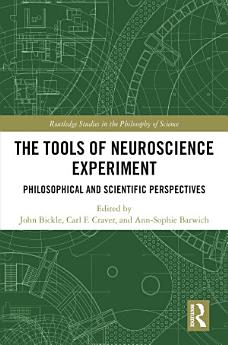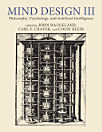The Tools of Neuroscience Experiment: Philosophical and Scientific Perspectives
ഈ ഇ-ബുക്കിനെക്കുറിച്ച്
The chapters in this volume integrate the currently scattered work on tool development in neuroscience into the broader philosophy of science community. They also present an accessible compendium for neuroscientists interested in the broader theoretical dimensions of their experimental practices. The chapters are divided into five thematic sections. Section 1 discusses the development of revolutionary research tools across neuroscience’s history and argues to various conclusions concerning the relationship between new research tools and theory progress in neuroscience. Section 2 shows how a focus on research tools and their development in neuroscience transforms some traditional epistemological issues and questions about knowledge production in philosophy of science. Section 3 speaks to the most general questions about the way we characterize the nature of the portion of the world that this science addresses. Section 4 discusses hybrid research tools that integrate laboratory and computational methods in exciting new ways. Finally, Section 5 extends research on tool development to the related science of genetics.
The Tools of Neuroscience Experiment will be of interest to philosophers and philosophically minded scientists working at the intersection of philosophy and neuroscience.
രചയിതാവിനെ കുറിച്ച്
John Bickle is Professor of Philosophy and Shackouls Honors College Faculty at Mississippi State University and Affiliated Faculty in the Department of Neurobiology and Anatomical Sciences at the University of Mississippi Medical Center. He is author of four academic books and editor of The Oxford Handbook of Philosophy and Neuroscience (2009).
Carl F. Craver is a Professor in the Philosophy Department and the Philosophy-Neuroscience-Psychology Program at Washington University in St. Louis. He specializes in the Philosophy of Science and has continuing research activity in the neuropsychology of memory. He is the author of Explaining the Brain: Mechanisms and the Mosaic Unity of Neuroscience and (with Lindley Darden) In Search of Mechanisms: Discoveries across the Life Sciences.
Ann-Sophie Barwich is Assistant Professor at Indiana University Bloomington (Department of History and Philosophy of Science and Medicine; Cognitive Science). She specializes in olfaction as a model for theories of mind and brain. Barwich is the author of Smellosophy: What the Nose Tells the Mind (2020).




